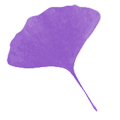dear friends,
Is this enough?
That’s the question I’ve been asking myself randomly throughout the day for the last several weeks. The idea of “enoughness” started bubbling up in my life when a friend asked me what the difference was between an invasive species and a non-native plant—I’ll explain the connection in a moment—and I realized that knowing what is enough is a key practice to living gently, but it’s a concept I’ve spent very little time contemplating. Until now.
Okay, so what do invasive species have to do with enoughness?
An invasive plant, like a cancer, is defined by unchecked growth. An invasive keeps expanding until it’s crowded out everything else. More is never enough. If you’ve ever walked through a forest where an invasive has taken hold, you know that everything seems wrong: instead of the pleasant hum of birds and insects, there’s silence; instead of a celebration of color from different leaves and flowers, there’s a single solitary shade; instead of a sense of communal wholeness, there’s a crushing monolith.
In the natural world, it’s obvious that enough is where life thrives: not too much, not too little. Yet, when it comes to our own individual lives and our shared social economic system, we tend to forget what is so obvious in the nature: more is not better, in fact, frequently, it’s worse. Yet, if social media in any way reflects the shared human philosophy on planet earth right now, it seems that a lot of us have internalized the idea that success is defined by buying, having, doing more.
But when I look around my own life, the people I admire aren’t those who are always thirsting for more — money, professional accolades, fitness, popularity, leisure, beauty, excitement, travel, power, stuff — but those who seem to have an inner guide that tells them: this is enough. They exude a calm confidence of knowing when more is skillful and when it’s not.
…and I want to be more like the latter and less like the former.

So, here’s the practice I’m adopting to help me re-calibrate my own sense of what’s enough.
(1) Ask yourself “Is this enough?” throughout the day. What surprised me most when I started asking this question was that it applies to almost everything: how hard I push myself during my morning ride, how much coffee I drink, whether I spend another hour working on that project or call it a day. I ask myself this question when I don’t really feel like revising a piece of writing and when I’m reaching for that third — okay, okay, fourth — piece of chocolate.
The practice of asking “Is this enough?” isn’t about judging yourself, it’s about re-learning what is healthy and skillful. As the question becomes more automatic, you’ll probably start noticing how unskillful and unhelpful “more” is as a guiding principle. When you focus on enough, you focus on doing what is necessary and sufficient for the situation: sometimes that will mean more, sometimes it will mean less, and sometimes it will be exactly what already is.
(2) Pay attention to your patterns. We all have patterns. In and of themselves, they’re like the weather: neither good nor bad, but useful to know. I have a tendency to push too hard, but there are times when I let things slide. Asking myself what is enough is helping bring both tendencies into the light. And, just by virtue of being brought into my awareness, both patterns have loosened their grip a bit. It seems to be a natural consequence of awareness: as soon as you realize that each moment is best served by what is appropriate for it, it becomes obvious how unskillful the automatic thirst for more is.
(3) Celebrate living intentionally. A week into this practice, I started noticing that I was more connected to my own life. That vague feeling of not measuring up simply because I could be and do more, which used to be a frequent companion, dissipated. By simply shifting the focus to what is enough, two things become apparent: First, there is nothing magic in more, it’s just more whatever. Second, asking what is enough requires you to be curious about the moment you’re in, and your answer is naturally intentional. You’re not just doing more because that’s the drumbeat of our times, you do more (or less) when it is skillful to do so. And the very act of checking in with yourself about what is enough cultivates intentionality and confidence naturally. You don’t have to do anything, intention and confidence just show up.
That’s it for this week! Wishing you a week of knowing, being and doing enough.
warmly,
alison



